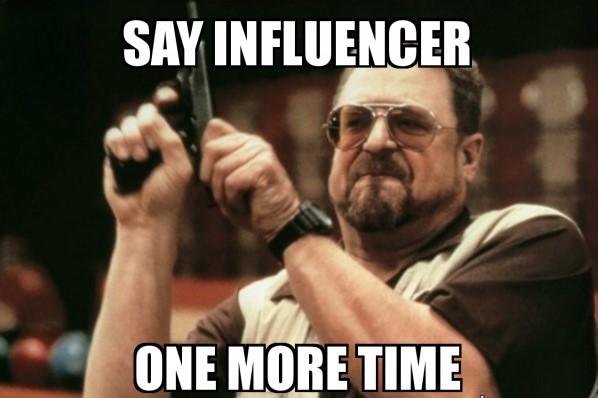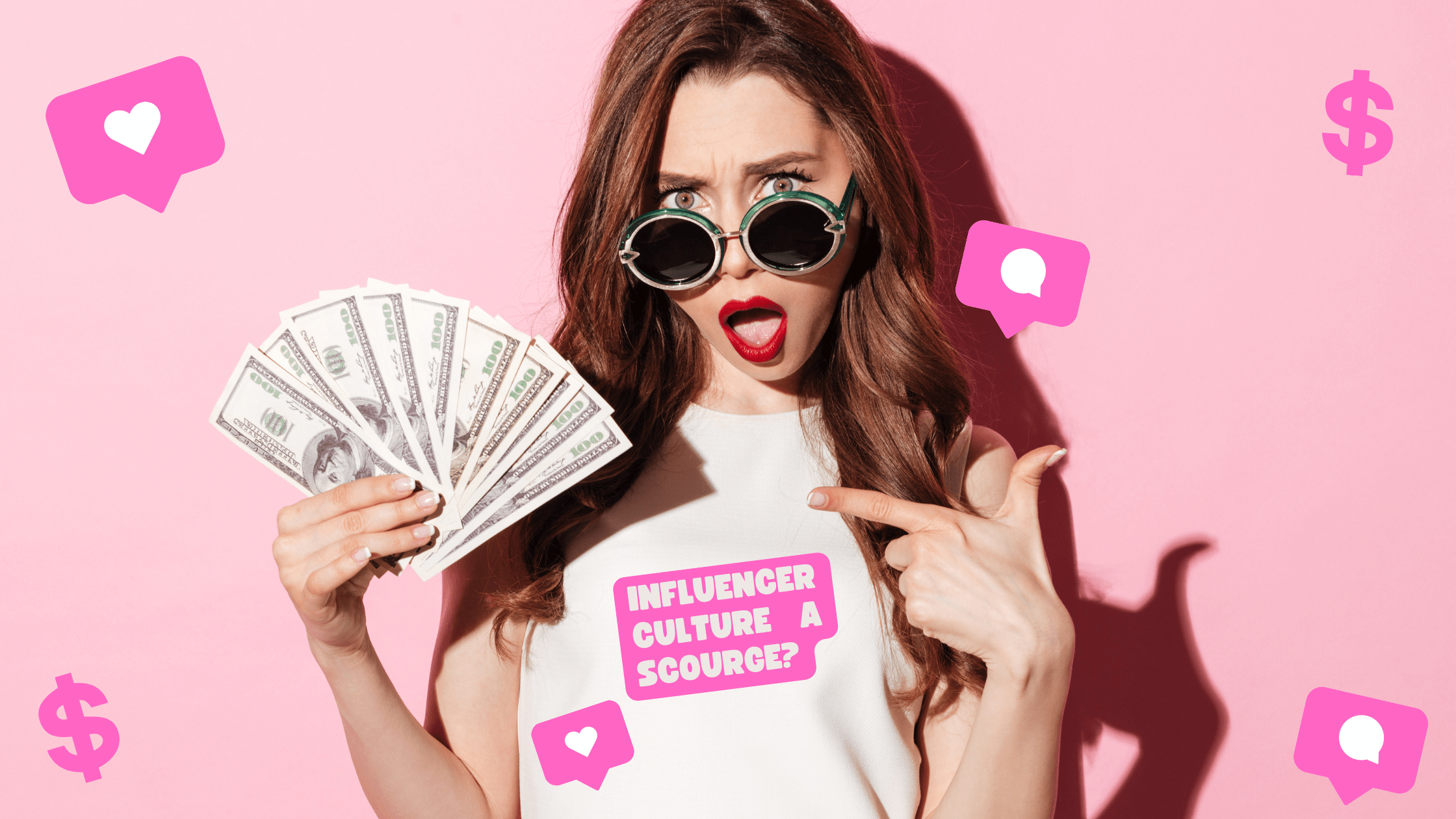Influencer culture saturates social media platforms like Instagram, YouTube, and TikTok with content creators who have built a following by sharing their lifestyle, interests, and experiences. Brands pay these individuals, known as influencers, to promote their products, perpetuating the idea that material possessions are a key marker of success and happiness.
Influencers also perpetuate unrealistic beauty standards, creating an unattainable standard of beauty that can lead to mental health issues and a culture of comparison and competition. The monetization of social media can lead to a lack of authenticity and trust, as influencers may promote products solely for financial gain without disclosing their relationship with the brand.
Overall, influencer culture can have a negative impact on society, undermining authenticity and perpetuating inequality and privilege. This article analyzes the negative impacts of the influencer culture on society, but first:
What is the Influencer Culture?
Influencer culture is a phenomenon that has emerged with the rise of social media platforms such as Instagram, TikTok, and YouTube. It is a term used to describe a group of people who have built a following on social media by creating and sharing content related to their lifestyle, interests, and experiences.
These individuals, known as influencers, are often paid by brands to promote their products to their followers. In many cases, influencers are seen as aspirational figures, with followers looking up to them for fashion, beauty, travel, and lifestyle inspiration. The influence of these individuals has grown to the point where they can shape consumer behavior, trends, and even societal norms.
Why term Influencer Culture as a Scourge?

I. Promoting Materialism and Consumerism
One of the most pernicious effects of influencer culture is the promotion of materialism and consumerism. Influencers are often paid to promote products, from clothing to cosmetics to tech gadgets. This creates an image of a lifestyle that is unattainable for most people and perpetuates the idea that material possessions are a key marker of success and happiness.
- Influencers often promote unrealistic expectations of what it means to be happy and successful.
- This can lead to anxiety, depression, and a constant feeling of inadequacy among viewers.
- Influencer culture promotes a culture of overconsumption, which can have negative environmental consequences.
Although influencers earn a lot from such deals, but that doesn’t justify the negative impact it has on the mass. Does it?
II. Fostering Unrealistic Beauty Standards
Influencer culture also perpetuates unrealistic beauty standards, particularly for women. Many influencers promote cosmetic procedures, diet products, and exercise routines that create an unattainable standard of beauty. This can be harmful to viewers, particularly young girls and women, who may feel pressure to conform to these standards in order to feel accepted and valued.
- The emphasis on physical beauty can lead to body dysmorphia, eating disorders, and other mental health issues.
- It creates a culture of comparison and competition, where individuals are judged based on their appearance rather than their character or achievements.
III. Undermining Authenticity and Trust
Influencer culture is also damaging because it undermines authenticity and trust. Many influencers promote products that they do not use or believe in simply because they are paid to do so. This can erode trust in influencers and the products they promote. It can also create a sense of inauthenticity in social media, where individuals are encouraged to present a perfect, curated image of their lives rather than their true selves.
- It can be difficult for viewers to know what is authentic and what is not, leading to a sense of confusion and mistrust.
- The constant promotion of products and brands can make social media feel like a never-ending advertisement.
IV. Perpetuating Inequality and Privilege
Influencer culture perpetuates inequality and privilege by promoting a certain lifestyle that is only attainable for a select few. Many influencers come from wealthy families or have built up wealth through their influencer status. This creates a sense of elitism and exclusivity, where only those with access to resources and connections can achieve success in the influencer world.
- The promotion of luxury products and travel destinations can create a sense of envy and dissatisfaction among viewers.
- It perpetuates the idea that success is only possible for those who have access to wealth and privilege.
V. Encouraging Narcissism and Self-Promotion
Finally, influencer culture encourages narcissism and self-promotion. Many influencers create content that is focused on themselves, their experiences, and their opinions. This can create a culture of self-obsession, where individuals are encouraged to prioritize their own image and success over the needs and interests of others.
- It can lead to a lack of empathy and a sense of entitlement among viewers.
- It can also lead to a lack of engagement with important social and political issues.

Conclusion
In conclusion, influencer culture can have a negative impact on society. While there are some positive aspects, such as promoting body positivity and self-expression, the overwhelming focus on materialism and consumerism can be damaging. The constant pressure to present an idealized version of oneself and the unrealistic standards promoted by influencers can contribute to poor self-esteem and body image issues, particularly in young people.
Additionally, the monetization of social media can lead to a lack of authenticity and transparency. Influencers may promote products solely for financial gain without disclosing the nature of their relationship with the brand, leading to a lack of trust between influencers and their followers.
Overall, it is important for individuals to approach influencer culture with a critical eye and not be swayed by the polished images and idealized lifestyles presented by influencers. Instead, focus on authenticity, self-expression, and promoting positive values. As consumers, we have the power to support brands and influencers who align with our values and promote genuine, meaningful content. By doing so, we can move towards a healthier, more positive influencer culture that benefits everyone.








![Top 5 Personal Branding Examples [2024]](https://fueled.community/wp-content/uploads/2024/05/Source-Proideators.com-9-551x431.png)


Leave feedback about this